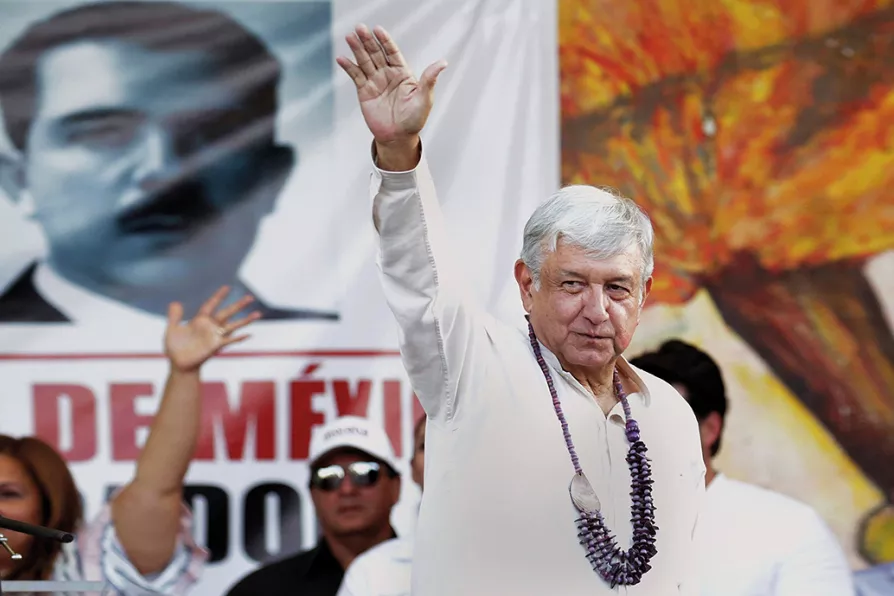John Wojcik pays tribute to a black US activist who spent six decades at the forefront of struggles for voting rights, economic justice and peace – reshaping US politics and inspiring movements worldwide

 Mexican President Amlo slammed Europe’s ‘interventionist mania
Mexican President Amlo slammed Europe’s ‘interventionist mania
ALONG with some 140 countries, Mexico voted at the UN to condemn the Russian invasion of Ukraine.
But along with most of Latin America, Africa and Asia, it has no plans to impose sanctions: to do so would violate the same principle of sovereignty and non-intervention.
Neither will Mexico impose censorship on RT or any other Russian media: its respect for media freedom is absolute.

A November 15 protest in Mexico – driven by a right-wing social-media operation – has been miscast as a mass uprising against President Sheinbaum. In reality, the march was small, elite-backed and part of a wider attempt to sow unrest, argues DAVID RABY

LEE BROWN highlights the latest attempts to undo progressive reforms instated during the presidency of Rafael Correa

FRANCISCO DOMINGUEZ says the US’s bullying conduct in what it considers its backyard is a bid to reassert imperial primacy over a rising China — but it faces huge resistance

DAVID RABY reports on the progressive administration in Mexico, which continues to overcome far-left wreckers on the edges of a teaching union, the murderous violence of the cartels, the ploys of the traditional right wing, and Trump’s provocations









